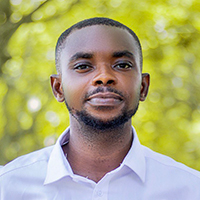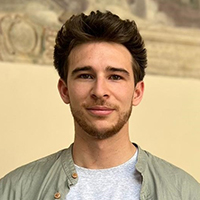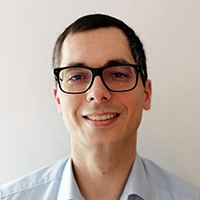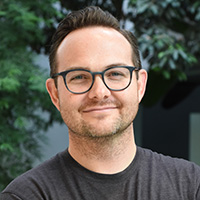New MembersJanelle YeoUniversity of Sydney, ANZAC Research Institute  About: I am an honours student in Neuroscience (University of Sydney, ANZAC Research Institute) with a background in neuroscience and anthropology (University of Sydney). Research: I have had first-hand experience in conducting neuroscience experiments in brain imaging (EEG), neuroenhancement (TMS), as well as biological models like iPSCs (motor neurons). And as an aspiring JD (University of New South Wales), I'm interested in exploring the ethical dimensions surrounding the application, interpretation, storage, and usage of neuroscience data. Lord Boateng AmponsahUniversity of Cape Coast  Research focus: I am a senior-year undergraduate student pursuing a bachelor's degree in biomedical sciences at the University of Cape Coast specializing in neuroscience. My research work currently focuses on exploring the neural basis for alcohol-induced learning and memory impairment in mice and using existing drugs as therapeutic options for treatment. I am interested in how brain data from the use of neuroimaging and neurotechnological tools are properly secured and protected. I aim to contribute to policies that regulate advances in neuroscience research in sub-Saharan Africa and also contribute to neuroethics education in Africa. Research Interests: Cognitive neuroscience, Computer Brain Interface, Neuroethics, Neurotechnology, Brain Data Privacy. Email: [email protected] / [email protected] LinkedIn / Twitter: @LordAmponsah_ Guido CassinadriSant'Anna School of Advanced Studies, Pisa  About: I am a PhD student in Health Science, Technology and Management at Sant'Anna School of Advanced Studies in Pisa and a PhD visiting student at the Technical University of Munich. I got a bachelor's and a master's degree in Philosophy at the University of Bologna. My research topics span through the philosophy of cognitive science, the philosophy of technology and neuroethics. In particular, my research in neuroethics tries to bridge the gap between the extended mind and cognition theory and the neurorights debate, by analyzing the ethical and normative implications of different ontologies of the mind. More generally, I am interested in the ethical implications of human-AI cognitive integrations. Research interests: Neurorights, Ethics of neurotechnologies, BCIs, Extended Cognition and Extended mind, AI-Mind integration, Cognitive Enhancement, Cognitive diminishment. I am open to collaborations on these topics. Orcid / University Profile / Research Page Florian RichterTechnical University Ingolstadt of Applied Sciences  My research focuses on the ethics of technology and artificial intelligence. I am a postdoctoral researcher at the Technical University Ingolstadt of Applied Sciences. Before that, I was a professor at the Tecnológico de Monterrey (Mexico). I taught classes on philosophy, ethics, and artificial intelligence. I studied philosophy, history, and politics at the University of Stuttgart (M.A.) and at the TU Darmstadt (Ph.D. in Philosophy) in Germany. I was also a Visiting Scholar at the University of Pittsburgh. I am open to collaboration and would like to learn more about empirical approaches in the field of neuroethics. Research interests: Ethics of technology, neuroethics, neurotechnology Lomax BoydJohns Hopkins University Berman Institute of Bioethics  My research focuses on scientific and ethical questions raised by human brain models that are created through genetic engineering, xenotransplantation, or in vitro brain organogenesis. Using scientific and conceptual approaches, I am interested in what are the neurobiological mechanisms that contribute to human cortical development and cognitive function, especially those that (may) contribute to our moral status. Moreover, I am particularly interested in how to integrate philosophical and empirical bioethics into neuroscientific research, training, and education. Research topics: Neuroethics education, community engagement, co-design Jagger WilcockArizona State University  I am a recent undergraduate alumnus with a bachelor of science in biological sciences, looking to pursue a career in neuroscience. In my time at Arizona State University, I was a member of the NeuroDevils club, and I got brief experience in the Memory and Attention Control Laboratory. Research Interests: BCI, Cognitive Enhancement, Crime and Punishment, Free Will, Genetics, Neurolaw, Neurorights Gricel Paulina Orellana Vidal, MD, PhDUniversity of Chile  Appointments:
Research focus and interests: schizophrenia, neuroscience, ethics Francisco Rosero - VillarrealUniversidad Panamericana  About me: I am currently working on my PhD on Ethics in neurotechnology, neuroethics, neurorights in Latin America, interested in public policy on these issues in my region. Research interests: Bioethics, BCI, Neuroethics, Neurotechnology, Neurorights, Public Policy
Erik DalyMiller Johnson Law Firm  About me: I am a practicing attorney based in Michigan. My academic background is in the areas of economics and finance (NYU, 2004) and law (Harvard Law School, 2007). I am very interested in the intersection of neuroscience, emerging technologies (esp. AI) and law. At Miller Johnson, I co-chair our firm's Artificial Intelligence Committee. Research interests: I am focused on the intersection of neuroscience, technology and ethics, as well as their impact on our evolving systems, concepts and applications of law. Reasons for joining: Initially, my interest was in the ways that neural networks in the context of AI are and are not similar to actual human neurological functions. I found many authors and speakers summarized the function of neural networks by simply stating these networks acted like the neurons in our brains, but I did not find these explanations very insightful or satisfying. As a result, I started reading about neurology to better understand whether this was a useful comparison. Reading about neurology eventually brought me to neuroethics, and it seems clear that this is an area where lawyers (like me) need to be more engaged and curious. Collaboration / Engaging: I would like to learn more about the emerging ethical considerations in neuroscience and explore whether there are ways I can contribute as a lawyer. I am also eager to share insights across fields of study and believe a multidisciplinary approach to neuroethics is essential to progress in the field. Hayden D. Ferguson, MAWilliam James College  About me: I am a 5th-year student in clinical psychology at WJC, concentrating in neuropsychology. I am currently training as a predoctoral intern in adult neuropsychology at Oklahoma University Health Sciences Center. My research focuses on neuroethics in the context of neurosurgery and treatment with neurotechnology, namely deep brain stimulation (DBS) for Parkinson's disease. My dissertation explored the effects of subthalamic nucleus stimulation on personality and self-concept. I am interested in continuing to explore cognition, personality, and identity in the context of DBS and other neurosurgical techniques. Research interests: Deep Brain Stimulation and Neural Engineering; Alzheimer’s Disease; Neuroscience and Free Will/National Security; Medical ethics; Movement disorders; Prosthetics; Collaboration: I am interested in collaborating. Please contact me: |
